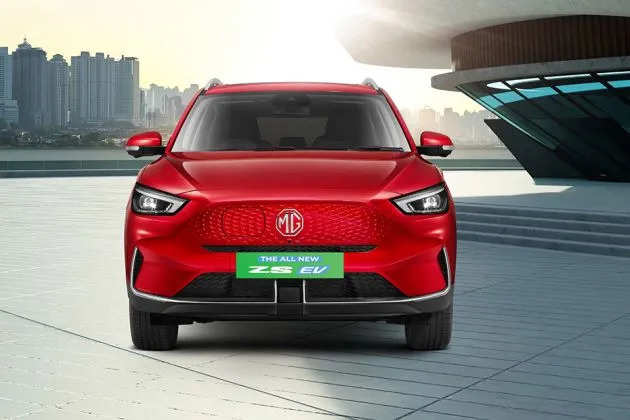
New Delhi: In an attempt to capture a larger share of the EV space, MG Motor India has plans to introduce two new products in the Indian market this year, including an electric vehicle (EV).
“We are bringing two new cars during the second half of this year and one of them is an EV for sure. We will keep adding new products to our portfolio next year also,” Gaurav Gupta, Deputy Managing Director, MG Motor India told ETAuto.
Currently, EVs account for 25%-30% of MG’s total sales in India. “We want to build up the momentum this year and expect EV contribution to grow as we go forward.”
For the industry, EVs contribute to no more than 2% of the overall sales. However, he is quite optimistic of the growth trend. “We expect the share of EVs in the industry to grow to about 4%, marking an almost 100% growth. Next year, we expect this to grow up to about 6%-7% of the industry and that is also when the tipping point will happen. 2025 onwards, it (EV adoption) will leapfrog.”
Infrastructure growth, better understanding of battery technology by stakeholders, and new EV models lined up by various brands in H2 2025 will add to the momentum, he added.
MG Motor entered the Indian market with its Hector in 2019. Currently, it sells the Astor, Gloster, Hector 5-seater, Hector Plus and ZS EV SUVs, and the Comet EV in the country.
It was amongst the first automakers to introduce an EV in the market, starting with the ZS EV in 2020. In May 2023, MG launched its second EV offering Comet at an introductory price of INR 7.98 lakh (ex-showroom).
Newer options for EVs
Last month, MG reduced the prices of Comet EV, which now starts at INR 6.98 lakh. This week, MG has introduced new lower priced variants of both its EVs. Comet’s new variants Excite FC and Exclusive FC will come with fast charging options at a price of INR 8.23 lakh and INR 9.13 lakh respectively.
“This is not price reduction, we have repositioned and launched new variants. It’s all about readjusting the features, seeing what the consumer movement has been in this segment, and then working at the backend in terms of our cost efficiencies and logistics and all the elements to put in place to get this entire package out,” Gupta said.
He accepted that Comet had a slow start at the time of launch, because “any new shape and concept always takes a bit of time for the reform to happen”. However, post the repositioning of the model, he claims to have seen a 70% uptake in its bookings.
According to him, Comet is being owned by households as their second or third car. “Almost 15%-20% are customers who have luxury cars in their portfolio. So the Comet becomes a very useful vehicle for them and the most sought for car because of congestion and traffic in the cities.”
Growth Story
In May 2023, SAIC-owned MG Motor India said it was looking to dilute the majority stake in the company to Indian entities to fund its expansion plans in the country over the next five years. In June 2023, reports suggested that the automaker will be owned by Sajjan Jindal promoted JSW Group.
As part of the transition, the top management and board of the company will have a larger share of Indians. On January 23 this year, the Competition Commission of India (CCI) approved JSW Ventures Singapore’s acquisition of up to 38% of MG Motor India. JSW Ventures Singapore is a newly incorporated entity which is a wholly owned subsidiary of JSW International Tradecorp and belongs to JSW Group.
The acquisition comes amid increased scrutiny by the Indian government on investments made by China amid heightening geopolitical tensions.
“We are at a turning point in India. We started out well, but then had some challenges in between. However, we have managed to hold the reins very well,” Gupta said.
In FY 2023-24, the passenger vehicle industry in India is expected to close sales at 42 lakh units. Industry estimates suggest a single-digit growth this year, on a high base of last year. MG agrees.
Talking about the outlook of the next year, Gupta noted, “We expect a single-digit growth to the tune of 5%-6% in FY25.” However, MG has an internal target to grow by 20%-25% over last year.
The automaker has an annual production capacity of 80,000 units at its plant in Halol, Gujarat, which can be expanded to 1.25 lakh by operating multiple shifts in various combinations.
It has a gender diversity ratio of 37% and aims to take it up to 50%.















